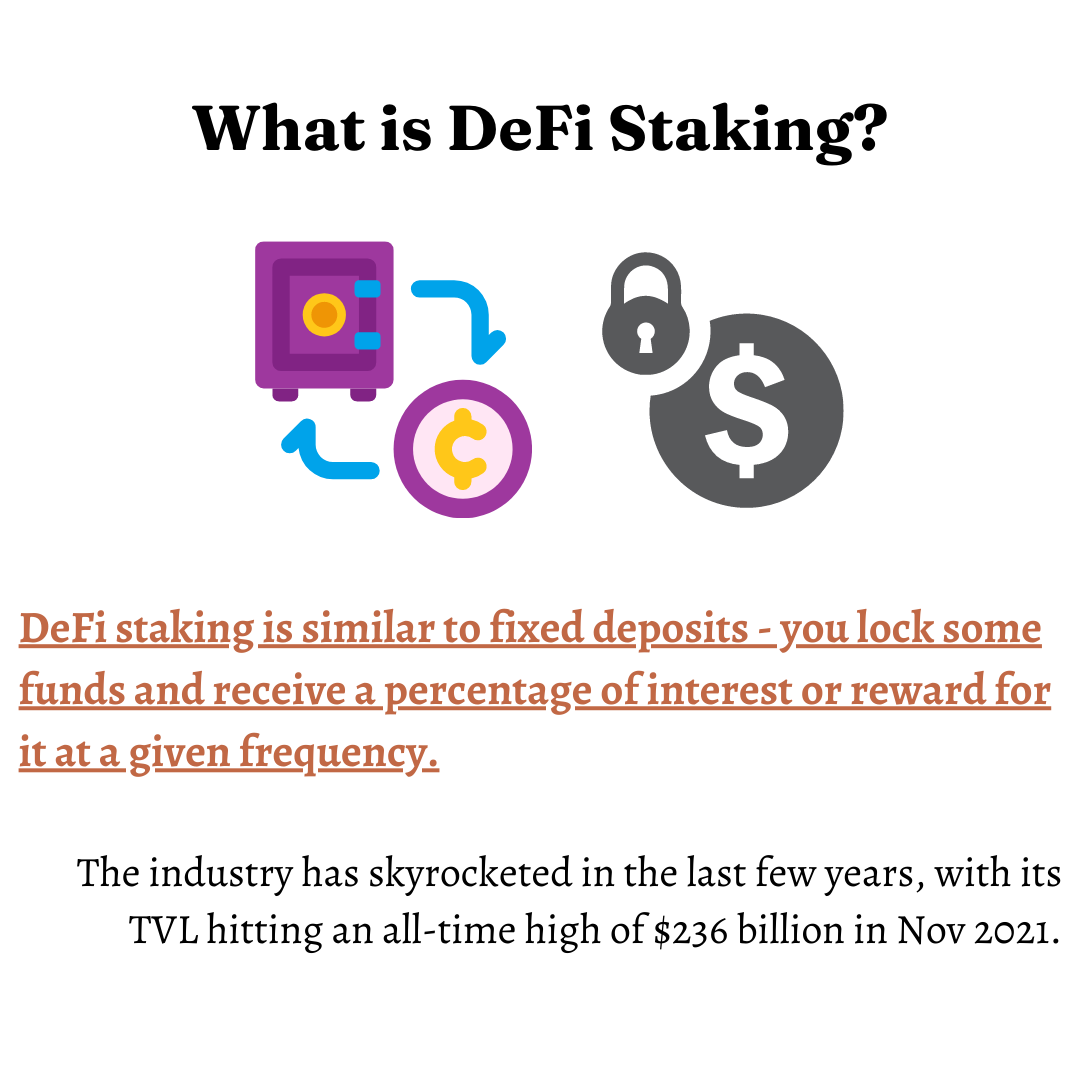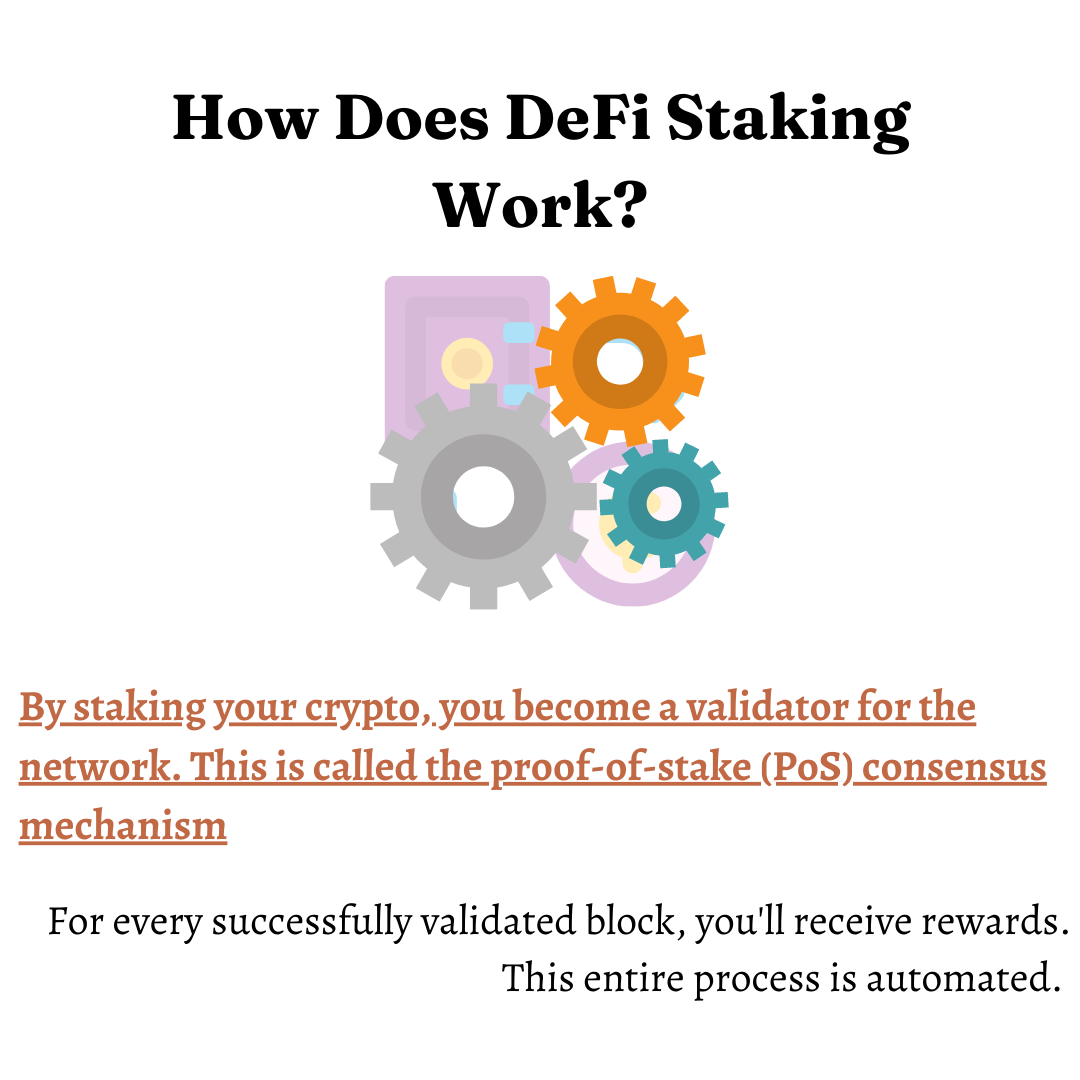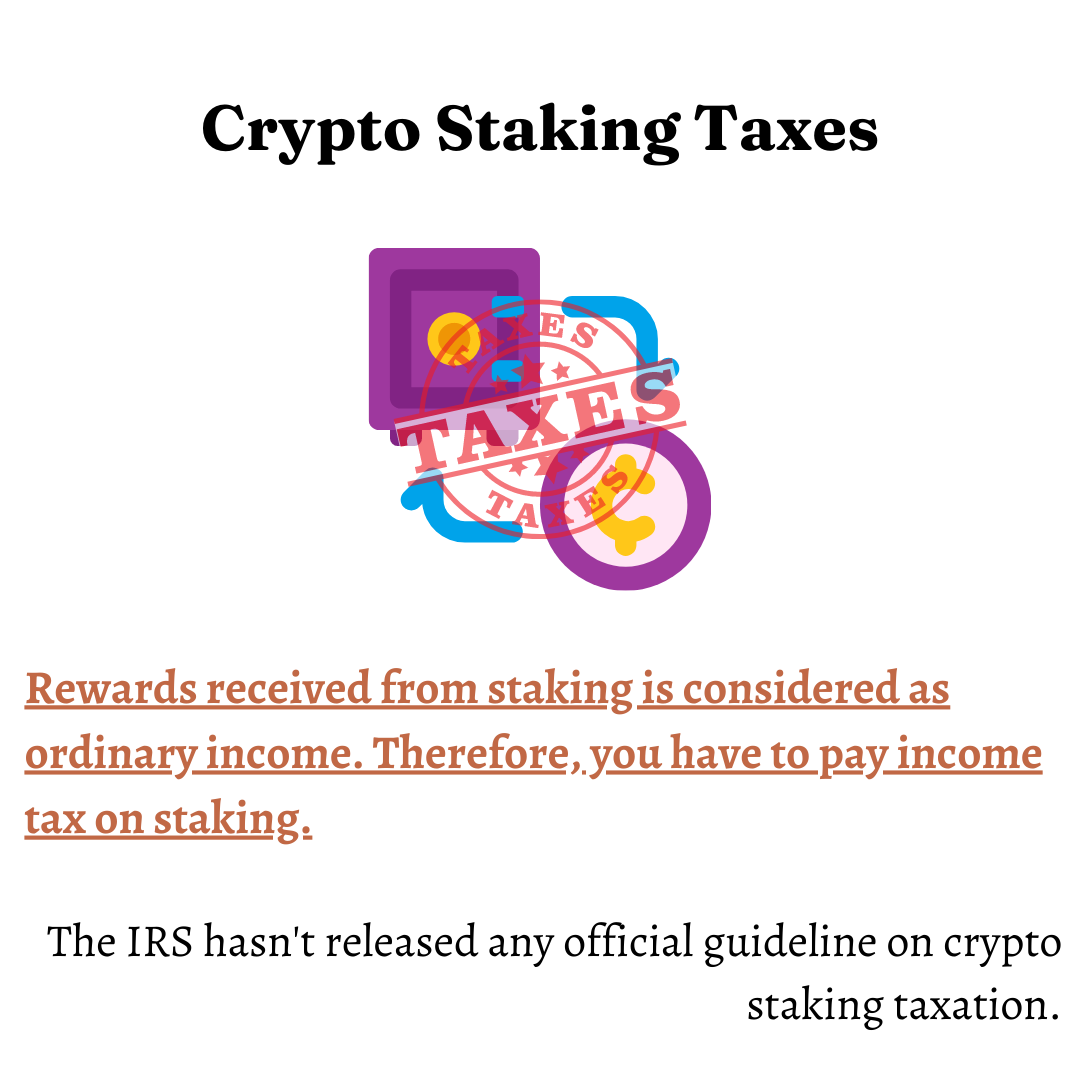What is DeFi Staking & its Tax Consequences in 2022
If you’re looking up “what is DeFi staking” on the internet, you’re probably overwhelmed by the extreme hype and talk around it and wanna find out what it’s all about.
The DeFi staking industry has skyrocketed in the last couple of years, with its Total Value Locked hitting an all-time high of $236 billion in November 2021.
Attractive returns, flexible staking options and lack of intermediaries are some of the many reasons why this industry will, without a doubt, keep growing. It’s a lucrative source of passive income while supporting your favorite DeFi projects.
But to get the maximum amount of profits, you need to stay ahead of the curve. You need to understand what it is, how it works, its benefits, its drawbacks and so on, which is what we’ll dig into in this article.
What is DeFi Staking?

DeFi staking is pretty much similar to how traditional staking, interests or fixed deposits works – you lock some funds and receive a percentage of interest or reward for it at a given frequency.
Despite being similar, DeFi staking is totally different from traditional passive income sources for various reasons.
Firstly, you can earn as much as 13% on your total holdings per annum. There are no other financial instruments that offer interest rates as high as this.
It’s also extremely easy to get into it, which we’ll discuss more when we explain how DeFi staking works. Even a beginner in crypto can get started with DeFi staking without extensive knowledge or experience.
The lack of intermediaries and regulatory systems is another huge factor for people choosing DeFi staking over other means.
Lastly, since we’re essentially funding DeFi projects by staking our crypto, which is a bit too simplified, we get the opportunity to learn more about the DeFi space as a whole and stay up-to-date with it.
For example, Fantom is among the many DeFi projects that are grabbing a lot of attention from crypto investors lately. It’s a high-performance and secure smart-contract platform for decentralized applications (Dapps). It aims to solve the scalability limitations of previous blockchain technology.
Speaking of Dapps, YeFi is yet another very popular DeFi project you can stake your crypto against. They are merging decentralized storage with decentralized finance.
How Does DeFi Staking Work?

Now that we know what DeFi staking is. Let’s talk about how it works. On the surface, we know how it works – you stake your crypto and get rewards for staking. But there’s a lot more going on, on a deeper level.
Where exactly are we staking our crypto? How are we getting these rewards, and why? Are there any hidden consequences?
To put it simply, when you stake your crypto, you’re essentially locking your crypto into a smart contract. And by doing this, you become a validator for the network.
It’s called the proof-of-stake (PoS) consensus mechanism. It’s different from the proof-of-work (PoW) mechanism that Bitcoin uses. As you might know, Ethereum also uses the PoS mechanism to mine its crypto.
In a proof-of-stake system, the role of the validators is to validate blocks of transactions and enforce the underlying consensus rule to ensure no one cheats the system.
For every successful block validated, they receive rewards. However, if they fail, they’ll lose their staked crypto. This is called a ‘slashing’ event.
Unlike the PoW mechanism, PoS doesn’t require any manual oversight since the entire process is automated. All you have to do is stake your crypto, sit back and claim your rewards from time to time.
DeFi Staking Platforms
The next most important to know after what is staking and how it works is where to stake your cryptocurrencies. Not only are there a variety of different DeFi staking platforms, but also different kinds of platforms.
We can divide them roughly into these three categories –
- Staking on exchanges
- Staking on staking pools
- Staking on DeFi platforms
There’s a new, fourth emerging category known as SaaS DeFi platforms.
Here, we’re solely talking about staking on DeFi platforms. As we discussed before, DeFi platforms allow staking without any intermediaries with the help of self-executing smart contracts. That’s how DeFi exchanges work as well.
It doesn’t require you to bet your money and trust on organizations and projects that you know very little about. It’s probably the simplest and most straightforward way of staking but has its own drawbacks as well.
When choosing a DeFi staking platform, here’s what you should consider the most – credibility, features and fees.
Credibility is probably the most important of them all. Cryptocurrency in itself is very risky regarding scams and hacks. That’s why the first thing to consider when doing anything crypto-related on a platform is how credible and trustworthy it is. After that, look out for better features and cheaper fees.
Top 3 Most Popular DeFi Staking Platforms
Binance – Binance allows two options, one for staking on their exchange and another for DeFi staking. It also doesn’t charge you any fees. Since Binance is already an established company in the crypto industry, it has all three elements of credibility, good features and low fees.
Lido – Lido is a DeFi platform for staking. It supports Ethereum 2.0, Solana and Terra and charges 10% fees.
Staked.us – Staked.us is a SaaS staking platform that also allows DeFi staking. It supports up to 32 cryptocurrencies, including Ethereum 2.0, Cardano and Solana.
Crypto Staking Taxes

The guidelines regarding crypto staking taxes are a bit unclear at this point. The closest thing the IRS put out regarding crypto staking taxes is taxes on crypto mining. As we know, mining of new crypto is considered as income and taxed under income tax rates, and so are rewards acquired from crypto staking.
Read this to know more about crypto mining taxation.
On selling the crypto you received as rewards from staking, you’ll incur capital gains (or losses) and trigger a taxable event.
The crypto community wants the IRS to treat crypto staking as the creation of new property, and new properties aren’t taxed until it’s sold. However, as of now, the IRS hasn’t put out any official guidelines regarding crypto staking. So, we work with what we have.
Check out this in-depth conversation around DeFi, staking and liquidity pools taxation with Andrew Gordon.
Other than that, if you stake crypto on a centralized platform, the platform will most likely report your transaction history and user details to the IRS. But that’s not the case with staking crypto on decentralized platforms. SInce DeFi platforms have no higher authority, they don’t report to the IRS.
Don’t confuse DeFi staking with DeFi platforms. You can choose the DeFi staking option on Binance, which is still a centralized platform and will likely report to the IRS.
Benefits of DeFi Staking
Get Higher Returns – This is the benefit of crypto staking overall. You get higher returns compared to traditional means of earning passive income.
Security and Anonymity – Generally, DeFi staking takes place on DeFi platforms. Therefore, you have more control over your assets, and your assets are more secure compared to centralized platforms.
Plus, you can stake crypto anonymously without providing personal information to the platforms.
Low-Entry Barrier – Not all staking platforms are easy to get into. Some require a huge investment just to get started. However, that’s not the case with DeFi staking. You can start with a very little amount.
Drawbacks of DeFi Staking
Locked Staking – Staking requires that you lock your assets (crypto) for a limited period of time. So, there’s a risk that you might not be able to use your crypto in an emergency where you need the funds. However, at the end of the day, it’s up to you to stake your crypto responsibly.
However, this may not be the case with all DeFi projects or platforms.
High Fees – Some DeFi platforms charge a huge percentage of your rewards.
Price Volatility – This is a risk with cryptocurrency as a whole. As we know, crypto prices are volatile, and significant price drops on your staked crypto may outweigh the rewards you earn.
Is Staking Crypto Worth it?
Primarily, people who stake crypto earn rewards, rewards that are higher than traditional means of earning interests on locked funds.
If you understand the risks involved and stake your crypto strategically, it’s totally worth it. However, it’s a long-term game and pays off after a while.
So, if you’re looking to earn the maximum returns in the shortest period of time, staking crypto isn’t worth it.
Is Staking Crypto Safe?
If you understand the risk of price volatility, there’s nothing really inherently unsafe about crypto staking. However, the platform you use to stake crypto could be.
So, as we mentioned earlier, before choosing any platform to stake your crypto in, do your research. Make sure it’s a credible and trustable platform.